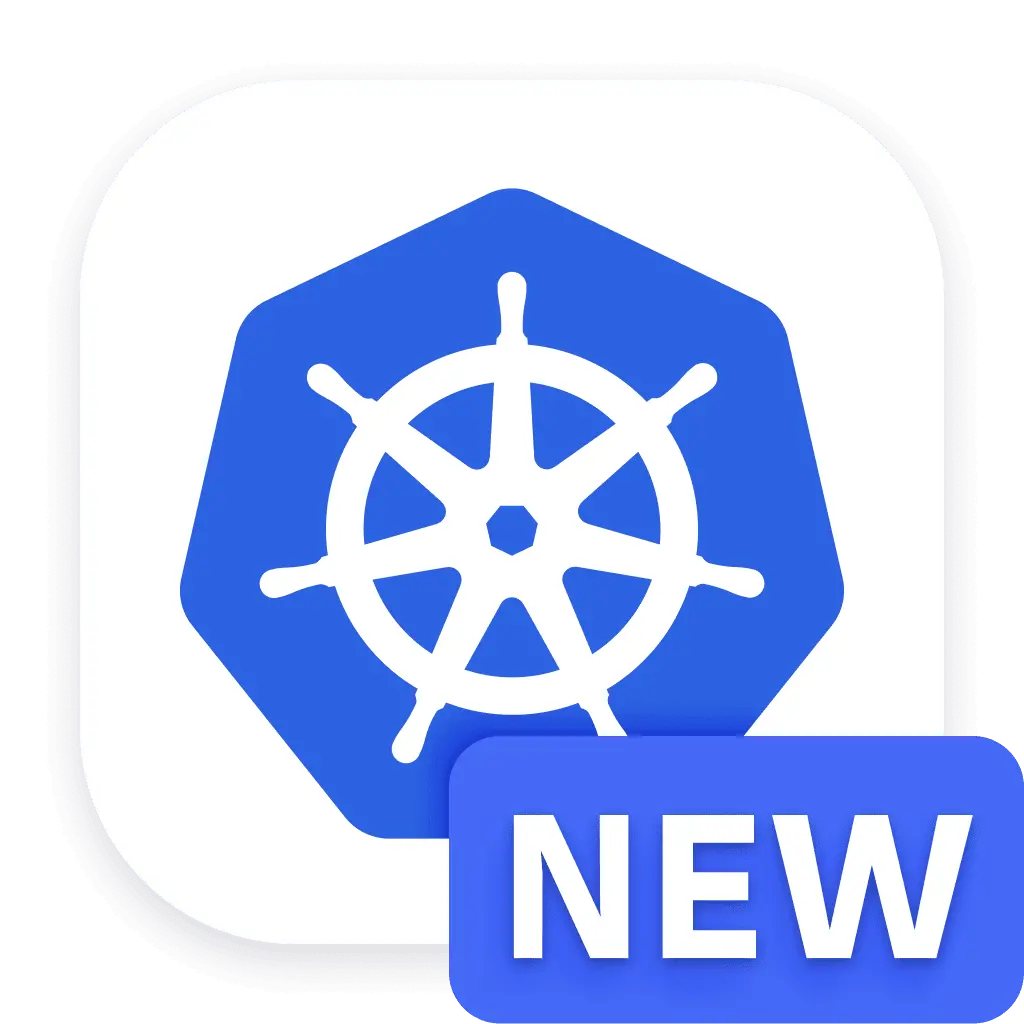Advanced analytics with Notebooks
- Latest Dynatrace
- Reference
- 6-min read
You can use  Notebooks to analyze your carbon footprint data.
Notebooks to analyze your carbon footprint data.
Example 1
Gets all the business events from your OneAgent-monitored environment. The results of this query display a list of metrics reported by OneAgent instances for the selected timeframe in your Notebooks query.
fetch bizevents| filter contains (event.provider, "dynatrace.biz.carbon")| filter contains (event.type, "carbon.measurement")
The event.type == “carbon.report” is no longer supported after the app version 0.28.0, but old data can be explored, blending new and old event.types, with an alternative query:
fetch bizevents| filter contains (event.provider, "dynatrace.biz.carbon")| filter in(event.type,"carbon.report", "carbon.measurement")
Example 2
Gets the energy and CO2 consumption per host.
fetch bizevents| filter contains (event.provider, "dynatrace.biz.carbon")| filter contains (event.type, "carbon.measurement")| summarize totalEnergy = sum(energy.measurement.computing), totalCO2e = sum(carbon.emissions), by:dt.entity.host
The attributes emissions and totalElectricConsumption are deprecated from the data model since the app version 0.28.0. If needed, the following alternative query makes calculations with the old and new schemas:
fetch bizevents| filter contains (event.provider, "dynatrace.biz.carbon")| filter contains (event.type, "carbon.measurement")| fieldsAdd energy.measurement.computing=if(isNotNull(totalElectricConsumption), totalElectricConsumption, else:energy.measurement.computing)| fieldsAdd carbon.emissions=if(isNotNull(emissions), emissions, else:carbon.emissions)| summarize totalEnergy = sum(energy.measurement.computing), totalCO2e = sum(carbon.emissions), by:dt.entity.host
The following table lists sample results of this query, where totalCO2e is in grams and totalEnergy is in watt-hours.
dt.entity.host
totalEnergy
totalCO2e
HOST-1
14.02
7.55
HOST-2
21.65
11.67
HOST-3
48.79
26.30
Example 3
Gets the emissions from the top ten hosts that are generating more CO2-eq in grams taking advantage of the lookup command to include the names of the hosts.
fetch bizevents| filter event.provider == "dynatrace.biz.carbon"| filter contains (event.type, "carbon.measurement")| fields dt.entity.host, carbon.emissions| lookup sourceField:dt.entity.host, lookupField:id, prefix:"host.",[fetch dt.entity.host ]| summarize totalEmissions = sum(carbon.emissions), by:{host.entity.name, dt.entity.host}| sort (totalEmissions) desc| limit 10
Example 4
Distributes carbon emissions by process group using CPU usage.
fetch dt.entity.process_group_instance| fields entity.name, dt.entity.host=belongs_to[dt.entity.host],dt.entity.process_group= instance_of[dt.entity.process_group],dt.entity.process_group_instance = id| lookup sourceField:dt.entity.host, lookupField:dt.entity.host, [fetch bizevents| filter event.type=="carbon.measurement"| summarize sum = sum(carbon.emissions), by:{dt.entity.host}], prefix:"carbon."| lookup [timeseries ts=avg(dt.process.cpu.usage),by:{dt.entity.process_group_instance}| fields cpu_sum= arraySum(ts), dt.entity.process_group_instance],sourceField:dt.entity.process_group_instance,lookupField:dt.entity.process_group_instance| fieldsAdd cpu_sum=lookup.cpu_sum| fieldsRemove "lookup*"| fieldsRename carbon_per_host=carbon.sum| lookup [timeseries ts=avg(dt.process.cpu.usage), by:{dt.entity.process_group_instance}| lookup [fetch dt.entity.process_group_instance], sourceField:dt.entity.process_group_instance, lookupField:id| fields ts, dt.entity.process_group_instance, dt.entity.host = lookup.belongs_to[dt.entity.host]| fieldsAdd cpusum = arraySum(ts)| summarize cpuHostSum = sum(cpusum), by:{dt.entity.host}],sourceField:dt.entity.host, lookupField:dt.entity.host| fieldsAdd carbon_per_process = (cpu_sum/lookup.cpuHostSum) * carbon_per_host| fields dt.entity.process_group, dt.entity.process_group_instance,dt.entity.host, carbon_per_process| sort carbon_per_process desc
Query steps explained
-
Line 1
fetch dt.entity.process_group_instanceFetches the table for
process_group_instance. -
Line 2
| fields entity.name, dt.entity.host=belongs_to[dt.entity.host],dt.entity.process_group= instance_of[dt.entity.process_group],dt.entity.process_group_instance = idCollects from topology the hosts that are running those process group instances and the process group where those instances belong. Filter by
hostIdif you want to get data only from that particular host. -
Line 3
| lookup sourceField:dt.entity.host, lookupField:dt.entity.host, [fetch bizevents| filter event.type=="carbon.measurement"| summarize sum = sum(carbon.emissions), by:{dt.entity.host}], prefix:"carbon."The lookup command collects all emissions from the hosts, matching with the hosts that are running processes. The fields that are collected from the
lookupcommand will come with acarbonprefix. -
Line 4
| lookup [timeseries ts=avg(dt.process.cpu.usage),by:{dt.entity.process_group_instance}| fields cpu_sum= arraySum(ts), dt.entity.process_group_instance],sourceField:dt.entity.process_group_instance,lookupField:dt.entity.process_group_instanceThe
lookupcommand collects the average values of the metrics CPU usage from each process instance in the system. -
Line 5
| fieldsAdd cpu_sum=lookup.cpu_sumCreates a new field for the CPU usage of the process instance.
-
Line 6
| fieldsRemove "lookup*"Removes all the fields that came from the last
lookup(the default prefix islookup). -
Line 7
| fieldsRename carbon_per_host=carbon.sumRenames a field for a better understanding of the data contained.
-
Line 8
| lookup [timeseries ts=avg(dt.process.cpu.usage), by:{dt.entity.process_group_instance}| lookup [fetch dt.entity.process_group_instance], sourceField:dt.entity.process_group_instance, lookupField:id| fields ts, dt.entity.process_group_instance, dt.entity.host = lookup.belongs_to[dt.entity.host]| fieldsAdd cpusum = arraySum(ts)| summarize cpuHostSum = sum(cpusum), by:{dt.entity.host}],sourceField:dt.entity.host, lookupField:dt.entity.hostThe first
lookupextracts host CPU usage by Process Group Instance enriching the result with thedt.entity.hostwithin the secondlookup.Inside the first
lookup, you can see atimeseriescommand that extracts the average CPU usage for each process. The result oftimeseriesis enriched with the otherlookupto collect the hosts and summarize the total CPU usage of each host coming from each process instance running on it. -
Line 9
| fieldsAdd carbon_per_process = (cpu_sum/lookup.cpuHostSum) * carbon_per_hostA new field is calculated to distribute carbon emissions per process, multiplying the total emissions generated on a host, by the proportion of CPU usage of the process versus the total CPU usage of the host.
All of these parameters have been calculated in the previous steps of the DQL query.
-
Line 10
| fields dt.entity.process_group, dt.entity.process_group_instance,dt.entity.host, carbon_per_processSelects only the relevant fields as an output of the DQL query.
-
Line 11
| sort carbon_per_process descSorts the results by the processes by most to least emissions generated.
Example 5
Gets the public price list costs of your cloud vendors.
fetch bizevents| filter event.provider == "dynatrace.biz.carbon"| filter event.type == "cost.list.price"| limit 1
Example 6
Gets the hourly price list costs of the instrumented hosts with OneAgent and with the configured cloud vendor extension.
fetch bizevents| filter event.provider == "dynatrace.biz.carbon"| filter event.type == "cost.list.spend"| filterOut isNull(cloud.provider)
Example 7
Gets the total costs per cloud provider from instrumented hosts based on the public price list.
fetch bizevents| filter event.provider == "dynatrace.biz.carbon"| filter event.type == "cost.list.spend"| filterOut isNull(cloud.provider)| summarize {totalCost = sum(cost.total), totalCpuCores = sum(resource.instance.cpu_cores)}, by:{cloud.provider}
Example 8
Gets the total public price cost from instrumented hosts per cloud provider over time for the last 30 days.
fetch bizevents, from:now()-30d, to:now()| filter event.provider == "dynatrace.biz.carbon"| filter event.type == "cost.list.spend"| filterOut isNull(cloud.provider)| makeTimeseries totalCost= sum(cost.total), interval:24h, by:{cloud.provider}
Example 9
Gets costs allocated by teams defined in the dt.owner attribute.
fetch bizevents| filter event.provider == "dynatrace.biz.carbon"| filter event.type == "cost.list.spend"| lookup [fetch dt.entity.host| fields id,entity.name,entity.type,tags,osVersion| expand tags| filter contains(tags,"dt.owner")| parse tags, """'dt.owner:'LD:owner"""], sourceField:dt.entity.host,lookupField:id,prefix:"lup.host."| fieldsRename lup.host.owner, owner| fieldsAdd team = if(isNotNull(owner),owner,else:"Unallocated costs")| summarize {`USD spent by team` = sum(cost.total), `number of instances` = count()}, by:{team}
Example 10
Lists the carbon emissions and energy consumption of all Kubernetes clusters.
fetch bizevents| filter event.type == "carbon.measurement.k8s.cluster"| summarize {carbon=SUM(carbon.emissions), energy=SUM(energy.measurement.total) }, by:{k8s.cluster.name}| sort carbon desc
Example 11
Calculates a timeseries of cluster Kubernetes data for use in a line or area chart visualization.
fetch bizevents| filter event.type == "carbon.measurement.k8s.cluster"| makeTimeseries sum(carbon.emissions), interval:1d, by:{k8s.cluster.name}
Example 12
Leverages the namespace bizevent to summarize carbon and energy by cluster and namespace.
fetch bizevents| filter event.type == "carbon.measurement.k8s.namespace"| summarize {carbon=sum(carbon.emissions),energy=sum(energy.measurement.total)}, by:{k8s.cluster.name, k8s.namespace.name}
Example 13
Reports on energy and carbon information from  Cost & Carbon Optimization with Kubernetes utilization information from
Cost & Carbon Optimization with Kubernetes utilization information from  Kubernetes.
Kubernetes.
Joining energy/carbon information with Kubernetes CPU and memory slack identifies the most costly and underutilized Kubernetes resources. Leverage this information with your application teams to reconsider optimizing their requests/limits to reduce slack and optimize carbon and costs.
This example is at the Kubernetes cluster only and can be extended to provide namespace visibility. Depending on the size of your Kubernetes infrastructure, you may wish to include this level of information in a dashboard and filter on a user-selected cluster.
The DQL for this example was built using the notebook intent in  Cost & Carbon Optimization and
Cost & Carbon Optimization and  Kubernetes, joining the two information sources using the
Kubernetes, joining the two information sources using the lookup DQL command.
fetch bizevents| filter event.type == "carbon.measurement.k8s.cluster"| fieldsAdd id = dt.entity.kubernetes_cluster// now aggregate carbon/energy by cluster| summarize {Carbon=SUM(carbon.emissions), Energy=SUM(energy.measurement.total)}, by:{id, k8s.cluster.name}// now let's get some CPU and memory utilization statistics// CPU statistics first| lookup [timeseries {valuesOp1 = sum(dt.kubernetes.container.requests_cpu),valuesOp2 = sum(dt.kubernetes.container.cpu_usage)}, by:{dt.entity.kubernetes_cluster}, from: -2m| fieldsAdd cpu_slack = valuesOp1[] - valuesOp2[]| fieldsAdd cpu_slack = arrayFirst(cpu_slack)], sourceField:id, lookupField:dt.entity.kubernetes_cluster, fields:{cpu_slack}, executionOrder:leftFirst| fieldsAdd cpuSlack =todouble( cpu_slack/1000 )| lookup [timeseries {valuesOp1 = sum(dt.kubernetes.container.cpu_usage),valuesOp2 = sum(dt.kubernetes.node.cpu_allocatable)}, by:{dt.entity.kubernetes_cluster}, from: -2m| fieldsAdd cpu_usage_percent = valuesOp1[] / valuesOp2[]| fieldsAdd cpu_usage_percent = record(usedPercentageOfMax=arrayFirst(cpu_usage_percent)*100,cpuCore=arrayFirst(valuesOp2)/1000)], sourceField:id, lookupField:dt.entity.kubernetes_cluster, fields:{cpu_usage_percent}, executionOrder:leftFirst| lookup [timeseries {valuesOp1 = sum(dt.kubernetes.container.requests_cpu),valuesOp2 = sum(dt.kubernetes.node.cpu_allocatable)}, by:{dt.entity.kubernetes_cluster}, from: -2m| fieldsAdd requests_cpu_percent = valuesOp1[] / valuesOp2[]| fieldsAdd requests_cpu_percent = record(usedPercentageOfMax=arrayFirst(requests_cpu_percent)*100,cpuCore=arrayFirst(valuesOp2))], sourceField:id, lookupField:dt.entity.kubernetes_cluster, fields:{requests_cpu_percent}, executionOrder:leftFirst| lookup [timeseries {valuesOp1 = sum(dt.kubernetes.container.limits_cpu),valuesOp2 = sum(dt.kubernetes.node.cpu_allocatable)}, by:{dt.entity.kubernetes_cluster}, from: -2m| fieldsAdd limits_cpu_percent = valuesOp1[] / valuesOp2[]| fieldsAdd limits_cpu_percent = record(usedPercentageOfMax=arrayFirst(limits_cpu_percent),cpuCore=arrayFirst(valuesOp2))], sourceField:id, lookupField:dt.entity.kubernetes_cluster, fields:{limits_cpu_percent}, executionOrder:leftFirst// now memory statistics| lookup [timeseries {valuesOp1 = sum(dt.kubernetes.container.memory_working_set),valuesOp2 = sum(dt.kubernetes.node.memory_allocatable)}, by:{dt.entity.kubernetes_cluster}, from: -2m| fieldsAdd memory_usage_percent = valuesOp1[] / valuesOp2[]| fieldsAdd memory_usage_percent = record(usedPercentageOfMax=arrayFirst(memory_usage_percent),memoryAllocatable=arrayFirst(valuesOp2))], sourceField:id, lookupField:dt.entity.kubernetes_cluster, fields:{memory_usage_percent}, executionOrder:leftFirst| lookup [timeseries {valuesOp1 = sum(dt.kubernetes.container.requests_memory),valuesOp2 = sum(dt.kubernetes.node.memory_allocatable)}, by:{dt.entity.kubernetes_cluster}, from: -2m| fieldsAdd requests_memory_percent = valuesOp1[] / valuesOp2[]| fieldsAdd requests_memory_percent = record(usedPercentageOfMax=arrayFirst(requests_memory_percent),memoryAllocatable=arrayFirst(valuesOp2))], sourceField:id, lookupField:dt.entity.kubernetes_cluster, fields:{requests_memory_percent}, executionOrder:leftFirst| lookup [timeseries {valuesOp1 = sum(dt.kubernetes.container.limits_memory),valuesOp2 = sum(dt.kubernetes.node.memory_allocatable)}, by:{dt.entity.kubernetes_cluster}, from: -2m| fieldsAdd limits_memory_percent = valuesOp1[] / valuesOp2[]| fieldsAdd limits_memory_percent = record(usedPercentageOfMax=arrayFirst(limits_memory_percent),memoryAllocatable=arrayFirst(valuesOp2))], sourceField:id, lookupField:dt.entity.kubernetes_cluster, fields:{limits_memory_percent}, executionOrder:leftFirst| lookup [timeseries {valuesOp1 = sum(dt.kubernetes.container.requests_memory),valuesOp2 = sum(dt.kubernetes.container.memory_working_set)}, by:{dt.entity.kubernetes_cluster}, from: -2m| fieldsAdd memory_slack = valuesOp1[] - valuesOp2[]| fieldsAdd memory_slack = arrayFirst(memory_slack)], sourceField:id, lookupField:dt.entity.kubernetes_cluster, fields:{memory_slack}, executionOrder:leftFirst// and get the pods allocatable data| lookup [timeseries {valuesOp1 = sum(dt.kubernetes.pods),valuesOp2 = sum(dt.kubernetes.node.pods_allocatable)}, by:{dt.entity.kubernetes_cluster}, from: -2m| fieldsAdd pods_percent = valuesOp1[] / valuesOp2[]| fieldsAdd pods_percent = record(usedPercentageOfMax=arrayFirst(pods_percent),rawMaxValue=arrayFirst(valuesOp2))], sourceField:id, lookupField:dt.entity.kubernetes_cluster, fields:{pods_percent}, executionOrder:leftFirst// counts| lookup [fetch dt.entity.kubernetes_node | fields id, matchedId = clustered_by[dt.entity.kubernetes_cluster]| lookup [fetch events, from: -370m| filter event.kind == "DAVIS_PROBLEM"| filter dt.system.bucket == "default_davis_events"| sort timestamp| summarize {event.status = takeLast(event.status),dt.davis.is_duplicate = takeLast(dt.davis.is_duplicate),affected_entity_ids = takeLast(affected_entity_ids)}, by: {event.id}| expand affected_entity_ids| filter isNull(dt.davis.is_duplicate) OR not(dt.davis.is_duplicate)| filter event.status == "ACTIVE"| summarize node.problem.count = count(),by:{affected_entity_ids}], sourceField:id, lookupField:affected_entity_ids, fields:{node.problem.count}| fieldsAdd unhealthy = if(node.problem.count > 0, 1, else: 0)| summarize raw_node.count = count(), raw_node.problem.count = sum(unhealthy), by:{matchedId}], sourceField:id, lookupField:matchedId, fields:{raw_node.count,raw_node.problem.count}, executionOrder:leftFirst| fieldsAdd node.count = raw_node.count, node.problem.count = raw_node.problem.count| lookup [fetch dt.entity.cloud_application_namespace | fields id, matchedId = clustered_by[dt.entity.kubernetes_cluster]| lookup [fetch events, from: -370m| filter event.kind == "DAVIS_PROBLEM"| filter dt.system.bucket == "default_davis_events"| sort timestamp| summarize {event.status = takeLast(event.status),dt.davis.is_duplicate = takeLast(dt.davis.is_duplicate),affected_entity_ids = takeLast(affected_entity_ids)}, by: {event.id}| expand affected_entity_ids| filter isNull(dt.davis.is_duplicate) OR not(dt.davis.is_duplicate)| filter event.status == "ACTIVE"| summarize namespace.problem.count = count(),by:{affected_entity_ids}], sourceField:id, lookupField:affected_entity_ids, fields:{namespace.problem.count}| fieldsAdd unhealthy = if(namespace.problem.count > 0, 1, else: 0)| summarize raw_namespace.count = count(), raw_namespace.problem.count = sum(unhealthy), by:{matchedId}], sourceField:id, lookupField:matchedId, fields:{raw_namespace.count,raw_namespace.problem.count}, executionOrder:leftFirst| fieldsAdd namespace.count = raw_namespace.count, namespace.problem.count = raw_namespace.problem.count// now let's add the utilization fields and display them with the carbon data by cluster| fields k8s.cluster.name, Carbon, Energy, node.count, namespace.count, cpu_usage_percent, requests_cpu_percent, limits_cpu_percent, cpuSlack,memory_usage_percent, requests_memory_percent, limits_memory_percent, memory_slack,pods_percent
 Cost & Carbon Optimization
Cost & Carbon Optimization NotebooksBusiness Observability
NotebooksBusiness Observability